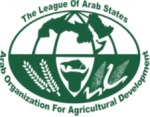This paper evaluates the impact of digital transfers on the well-being of households grappling with active conflict in Sudan. Considering the case of Sudan, where active conflict and funding gaps continue to hamper the delivery of humanitarian services, we aim to address the following questions: (i) Can digital cash transfers improve food and nutrition security outcomes of beneficiaries in conflict-affected settings?; (ii) Can digital transfers to an other-wise inaccessible population improve subjective well-being, mental health, and stress in the face of recurrent conflicts?; and (iii) Who benefits more from digital transfers, and do the impacts of digital transfers vary depending on the size of transfers or socioeconomic characteristics of households? To address these questions, we design a randomized controlled trial (RCT) involving digital transfers of different sizes to randomly selected urban households in Sudan. Digital transfers reached nearly all targeted beneficiaries, with about a quarter of households receiving them through their friends and relatives and hence incurring some transaction fees. Overall, digital transfers mitigated deterioration in food insecurity (by 7-8 percentage points) and improved subjective well-being and mental health. Interestingly, we find that the digital transfers are more beneficial (impactful) for those grappling with active conflict. Digital transfers also appear to be less effective for poorer households and households of a larger size. These findings highlight the potential of digital transfers to support those grappling with armed conflict.
Read the full paper here
